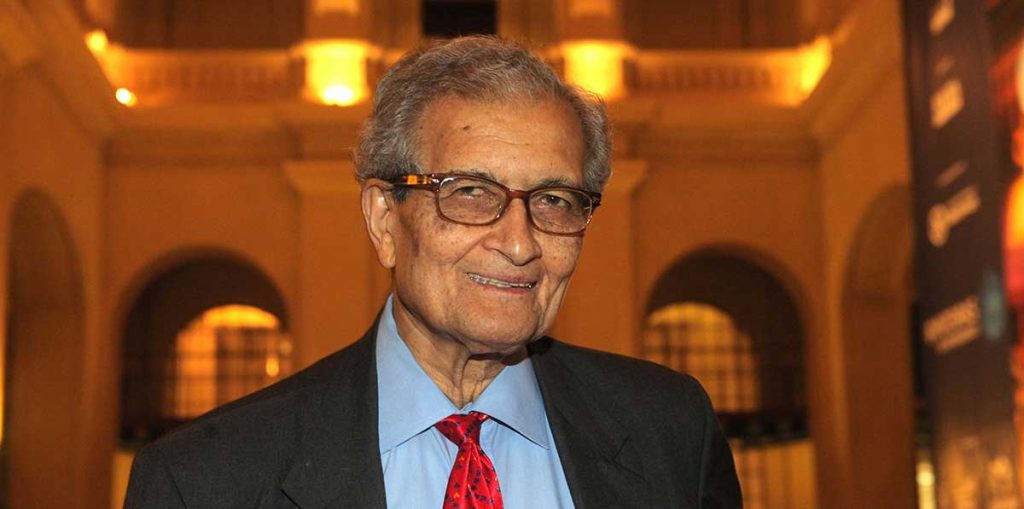Advocates of free speech in India see a ray of hope now that Pahlaj Nihalani has been removed as the chief of the Censor Board of Film Certification (CBFI). Acclaimed poet-lyricist Prasoon Joshi will take his place, it was reported on August 11. One of the most thrilled with the latest development is likely to be filmmaker Suman Ghosh, whose documentary, The Argumentative Indian, on Nobel Laureate economist Amartya Sen was stalled by the censor board.
Ghosh, who was asked to beep words such as ‘cow’, ‘Gujarat’, ‘Hindutva’ and ‘Hindu India’ that Sen had spoken in the documentary, had last week refused to mute the six words/phrases as recommended by the censor board officials. The National Award-winning filmmaker, who also teaches economics at Florida Atlantic University in Miami, said he was informed of the suggestions to keep on mute six parts (both words and phrases) — Gujarat, in India, Hindu, cow, these days and Hindutva for granting ‘U’ certification. “In my formal response I opted for ‘No’ option as there is no question of reconsidering my stand of effecting not a single cut in an Amartya Sen documentary,” Ghosh said, the Times of India reported.
“But since if a director says no in such situations, his film has to go to the revising committee, I guess I have to appear before the revising committee now in Mumbai,” he said. With Joshi at the helm of affairs at the censor board now, fans hope that films taking a critical view of the government will be see as what they are — a contrarian viewpoint.
The Argumentative Indian, an hour-long documentary, was shot in two parts between 2002 and 2017. The first part, titled Amartya Sen: A Life Reexamined, was released in 2011 . The second part —The Argumentative Indian — was to be released on July 14 this year.
The film was screened at the CBFI Regional office in Mumbai where the filmmaker was verbally told that the film could only be released with a UA certificate if he agrees to beep out the words.
“The attitude of the censor board just underlines the relevance of the documentary in which Sen highlights the growing intolerance in India. Such scrutiny of any criticism of the government in a democratic country is shocking. There is no way I would agree to beep or mute or change anything that one of the greatest minds of our times has said in the documentary,” Ghosh had said at the time in an interview with The Telegraph.
According to a report in the Indian Express, the CBFC office in Mumbai was sent a letter by the Kolkata branch, saying that the words should be beeped because they may hurt the sentiments of a community. The word “Gujarat” came up during a lecture that Sen delivered at Cornell University, which is a part of the documentary. The censor board believed that mention of the word Gujarat in a specific context may endanger the security of the state and that the word ‘Hindu India’ may instigate communal disharmony.
“It shows the country is in the hands of an authoritarian regime pursuing its own view of what is good for the country. I think what they object to is the particular statements, it’s not that they didn’t like my reference to Gujarat but it is to what happened in 2002,” Amartya Sen had said to NDTV, admitting that he was astonished after the decision.
The censor board drew a lot of flak under Nihalani for restricting documentaries and movies that seemed to carry slight hints against the view of the government. While the Hindi film, Lipstick under my Burkha was flagged for being too “lady oriented’ and “sexual”, the makers of Udta Punjab were asked to make about 90 changes, including removing the word ‘Punjab’ in the title, which was later turned down by the Bombay High Court.
